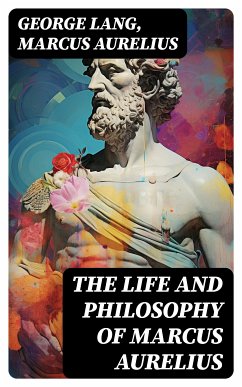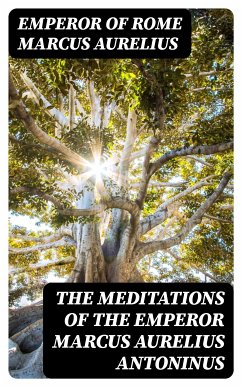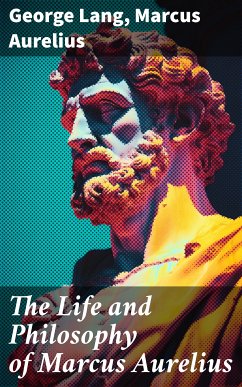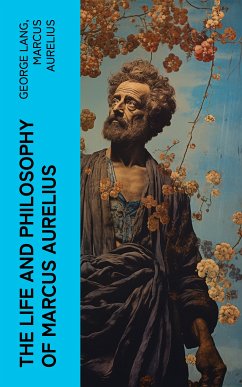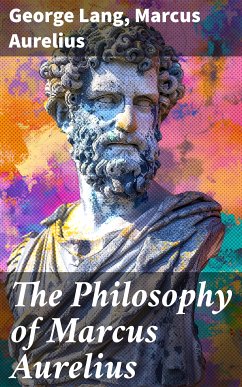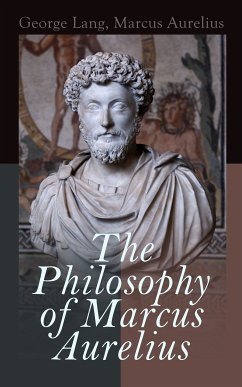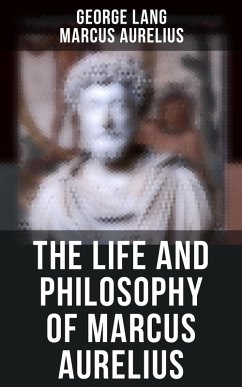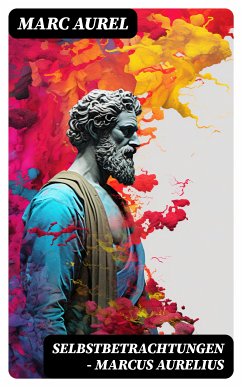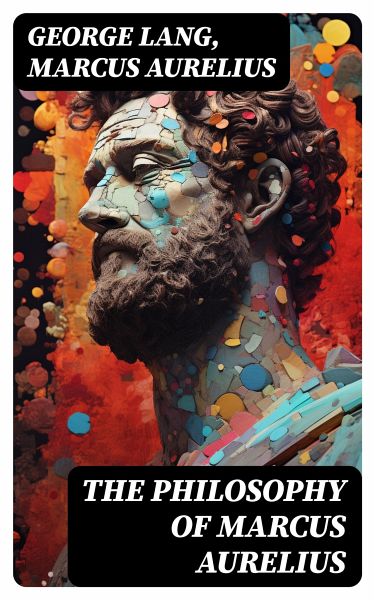
The Philosophy of Marcus Aurelius (eBook, ePUB)
Biography of Roman Emperor Marcus Aurelius; Study of His Philosophy & Meditations by Marcus Aurelius

PAYBACK Punkte
0 °P sammeln!
The Philosophy of Marcus Aurelius is a profound anthology that weaves together timeless meditations and essays, revealing a remarkable tapestry of human thought and introspection. Centuries of philosophical exploration come together within these pages, showcasing a diverse array of literary styles and philosophical musings. With a seamless interlacing of Stoic insight and modern interpretations, the collection stands as a testament to the enduring relevance of Marcus Aurelius's ideas. From contemplations on inner peace to examinations of ethical behavior, these writings articulate core themes ...
The Philosophy of Marcus Aurelius is a profound anthology that weaves together timeless meditations and essays, revealing a remarkable tapestry of human thought and introspection. Centuries of philosophical exploration come together within these pages, showcasing a diverse array of literary styles and philosophical musings. With a seamless interlacing of Stoic insight and modern interpretations, the collection stands as a testament to the enduring relevance of Marcus Aurelius's ideas. From contemplations on inner peace to examinations of ethical behavior, these writings articulate core themes that transcend time, offering readers rich spiritual and intellectual guidance without sacrificing literary elegance. Featuring contributions from the esteemed philosopher George Lang, this anthology provides an in-depth exploration of Marcus Aurelius's profound impact on philosophy. Lang curates these works with an eye for historical and cultural significance, fostering an appreciation for the depth and breadth of Stoic tradition. The collection's contributors, drawn from diverse backgrounds and philosophical schools of thought, collectively offer fresh interpretations and reflections that honor Aurelius's legacy while contributing to contemporary discourse. This blending of ancient wisdom with modern viewpoints enriches the reader's understanding of Stoicism and its application across various epochs and cultures. This anthology is an indispensable resource for readers seeking to immerse themselves in the philosophical underpinnings of Stoicism as captured eloquently by one of its leading figures. As a single volume, it illuminates a spectrum of ideas and voices, enhancing not only educational pursuits but personal philosophical inquiries. With each piece, readers are invited into a dialogue of reflective and transformative intellectual exploration. The Philosophy of Marcus Aurelius serves as an engaging portal into timeless Stoic reflections, encouraging introspection and offering a broader philosophical lens to navigate life's challenges.
Dieser Download kann aus rechtlichen Gründen nur mit Rechnungsadresse in A, B, BG, CY, CZ, D, DK, EW, E, FIN, F, GR, H, IRL, I, LT, L, LR, M, NL, PL, P, R, S, SLO, SK ausgeliefert werden.




